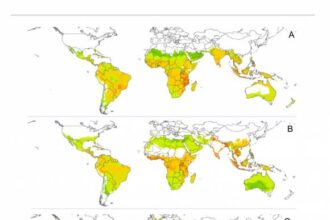AI technology is rapidly changing the future of the pharmaceutical sector. Pharmaceutical companies spent $908 million on AI last year, but that figure is growing by 29% a year.
A significant concern for pharmaceutical companies is closely tracking publications that discuss the safety of their products. For instance, the literature search process within the EU is subject to strict regulations, necessitating weekly searches.
The rapid expansion of medical literature and the surge in scientific publications have posed growing difficulties for pharmacovigilance experts in staying updated with the most recent information. To tackle this issue, many have looked to artificial intelligence (AI) and automated systems for support. Nevertheless, there are emerging apprehensions about the reliability of AI-driven platforms. Indeed, it’s essential to delve into the root causes of these concerns among pharmacovigilance specialists and determine the extent to which these concerns are warranted.
The promise of automation in pharmacovigilance
Automation in pharmacovigilance holds excellent promise. AI-driven platforms have the potential to enhance the efficiency and accuracy of medical literature monitoring significantly. These systems can swiftly sift through vast scientific articles and pinpoint relevant information. They also assist pharmacovigilance specialists in identifying adverse events associated with drugs or medical devices. Automated systems can also help in the early detection of safety signals, making it possible to take timely actions to protect patient safety. In addition, they can reduce the burden on human reviewers by automating repetitive tasks. This enables human reviewers to concentrate on more complex and nuanced aspects of pharmacovigilance work.
The reliability question
One of the key challenges in using automation for literature monitoring is the inherent ambiguity and complexity of medical language. Scientific articles often use specialized terminology, abbreviations, and jargon that can be difficult for automated systems to interpret accurately. This can lead to misclassifying articles as relevant or irrelevant, potentially missing critical information. Also, automated systems need the contextual understanding that human reviewers possess. They may need help differentiating between articles discussing the same drug in different contexts. This can lead to errors in signal detection and an inaccurate assessment of a drug’s safety profile.
The irreplaceable role of pharmacovigilance specialists
Let’s get down to the facts. Automating the search and review process leads to a remarkable 70-85% reduction in the manual effort and time devoted to monitoring. Furthermore, automated solutions accommodate all document types, including PDF, word, and jpeg. This automation of literature monitoring empowers pharmaceutical companies to efficiently oversee a significant volume of publications in diverse languages and frequencies. However, it’s important to note that automation can’t replace the expertise of pharmacovigilance specialists. It goes beyond just understanding medical terminology. Expertise in your products, their safety profiles, and the intricacies of production processes are aspects that automation can’t replicate.
Balancing automation and human expertise
Pharmacovigilance experts should adopt a well-balanced approach to using AI to foster automation in the pharmaceutical industry. Although automated systems can significantly enhance efficiency, they should be regarded as supplements to human expertise rather than substitutes. Human reviewers are vital for validating automatic results and offering the necessary contextual comprehension that machines lack.
A good illustration of this dynamic interaction between machine learning algorithms and human professionals can be found in the DrugCard platform blog. For example, an automated platform can analyze a 200-page journal in just 1.5-5 minutes. A pharmacovigilance specialist will likely only have time to skim the journal’s contents in the same time frame. Indeed, the successful collaboration between the speed of automated systems and human expertise is highly effective in pharmacovigilance.
Conclusion
The reliability of AI-driven platforms in pharmacovigilance remains a subject of concern. By maintaining a balanced approach that combines automation with human expertise, pharmacovigilance specialists can harness the full potential of this promising technology. Simultaneously, they can minimize associated risks through diligent monitoring and validation of results. In this ever-evolving field, striking the right balance between automation and human insight is the key to ensuring patient safety and the integrity of pharmacovigilance efforts.








